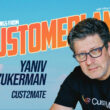Lockdowns in the last year-and-a-half illuminated which brands managed to maintain or gain loyalty through the pandemic. According to Brand Keys’ annual Loyalty Leaders List 2021, consumers chose to recognize established brands rather than support new ones.
“The 2021 loyalty rankings describe a desperate desire by consumers for a return to normalcy. Over the past year loyalty has experienced a COVID-induced medical and marketplace trial-by-fire, the toughest test of customer loyalty we’ve measured in nearly 40 years conducting loyalty research,” said Brand Keys founder and president Robert Passikoff.
Brands with high customer loyalty can sometimes act as proxies for emotional values that are missing in consumers’ lives. These brands are six times more likely to fulfill that role during certain periods, for example, lockdowns.
Home Depot, PayPal, Clorox, Hulu and Purell, for example, all maintained loyalty leads established during 2020, as per Brand Keys. The top 10 Brand Keys loyalty leaders are Amazon, Apple, Netflix, Domino’s, Amazon, Disney+, Google, WhatsApp, Instagram and Nike. All brands except Instagram and Nike were in the top 10 in 2020.
Of the top 20 Brand Keys loyalty leaders, Discover experienced the largest gain from the 16th to the 12th spot, while Samsung experienced the largest loss from 10th to 14th.
“The stronger the loyalty, the better the behavior shown toward a brand. The better behavior represented by sales, the stronger a brand’s bottom line,” added Passikoff.
New additions to the list this year include TikTok (#21), Apple TV (#26), Levi Strauss (#46), Red Bull (#61), Walmart.com (#64), Crest (#65), Svedka (#86) and Lululemon (#90).
While this year’s top 100 included significantly fewer new brands than previous years, some brands fell out of the top 100, including cosmetic brands Lancôme, Estee Lauder and Clinique; Vodka brands like Grey Goose and Ketel One; and Insurance brands like Progressive and Farmers.
Some brands’ return to the list through the pandemic reflect consumers’ longing for a return to the marketplace and as Brand Keys notes, “lifestyle regularity.” These brands included McDonald’s (#72), Shake Shack (#80), Mastercard (#81), Call of Duty (#82), Konica-Minolta (#93) and iTunes (#95).
Of the top 100 loyalty leaders, the brands that saw the largest gains included Pinterest (+22), Chobani (+21), Lyft (+17), Old Navy (+17), GEICO(+15), Ford(+15), Dick’s Sporting Goods (+15), Purell (+14), Chase (+12) and Square (+10).
Among those with the largest losses included Zara (-27), Costco (-23), USAA (-19), Budweiser (-19), T-Mobile (-18), State Farm (-18), Haagen-Dazs (-16), New Balance(-14), Sam’s Club (-14) and Zappos (-9).
Because loyalty is emotional and so are consumers, establishing a connection and satisfying expectations are imperative to growth during crises. Brands that make connections and satisfy mostly emotional expectations do about six times better during crises, and always better than their competition, according to Brand Keys.
Brand Keys’ data was derived from a cross-category study of brand loyalty among 1,260 brands in 112 categories between August and September 2021.






